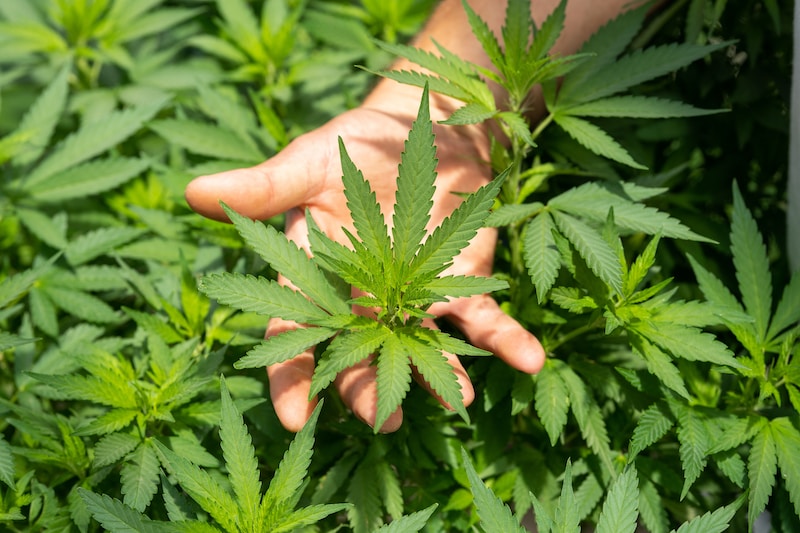
The quest for effective methods of weight loss and management has been a longstanding challenge in our society. With the growing interest in cannabinoids like Delta-8-tetrahydrocannabinol (Delta-8 THC) and their potential health benefits, some individuals are curious about whether Delta-8 THC can play a role in weight loss. In this article, we will explore the relationship between Delta-8 THC and weight management, examining the current state of research, potential mechanisms, safety considerations, and whether it can be a helpful tool in achieving weight loss goals.
Understanding Delta-8 THC
Delta-8 THC is a naturally occurring cannabinoid found in trace amounts in both cannabis and hemp plants. It is structurally similar to Delta-9 THC, the well-known psychoactive compound in marijuana, but its effects, potency, and legal status differ.
Unlike Delta-9 THC, which is known for its potent psychoactive properties, Delta-8 THC is reported to produce a milder, more manageable high. This makes it an attractive option for those seeking potential health benefits without the intense psychotropic effects associated with Delta-9 THC.
The Endocannabinoid System and Weight Regulation
To understand the potential relationship between Delta-8 THC and weight loss, it’s essential to delve into the role of the endocannabinoid system (ECS) in the body. The ECS is a complex network of receptors and neurotransmitters found throughout the body, including the brain and peripheral tissues.
The ECS is vital in regulating various physiological processes, including appetite, metabolism, and energy balance. It consists of two primary types of receptors: CB1 and CB2. CB1 receptors are predominantly found in the central nervous system, while CB2 receptors are primarily located in peripheral tissues, including the immune system.
The ECS helps maintain homeostasis, ensuring that various bodily functions are in balance. It influences the release of neurotransmitters, hormones, and cytokines that play a role in appetite control, energy expenditure, and fat storage.
Potential Mechanisms of Delta-8 THC in Weight Management
While research on the specific effects of delta 8 on weight management is still in its early stages, some potential mechanisms have been proposed based on its interaction with the ECS and related systems:
- Appetite Modulation: Delta-8 THC may interact with CB1 receptors in the brain, affecting appetite and food intake. Some studies suggest that cannabinoids can influence the release of hunger-related hormones, potentially reducing appetite and calorie intake.
- Metabolism Regulation: The ECS is involved in the regulation of metabolism, including the breakdown of fats and energy expenditure. Delta-8 THC’s interaction with ECS receptors may influence metabolic processes and help maintain a healthy balance.
- Fat Browning: Delta-8 THC may stimulate “fat browning,” a process in which white fat cells (which store energy) are converted into brown fat cells (which burn fuel). Brown fat cells are more metabolically active and can contribute to weight loss.
- Stress Reduction: Chronic stress and anxiety can lead to overeating and weight gain. Delta-8 THC’s potential anxiolytic (anxiety-reducing) effects may indirectly support weight management by helping individuals manage stress-related eating.
- Appetite for Specific Foods: Some users report that Delta-8 THC can alter their cravings, making them less interested in unhealthy or high-calorie foods. This change in food preference could contribute to weight loss.
Current State of Research
It’s important to note that while there is some evidence to suggest that cannabinoids like Delta-8 THC may have potential effects on weight management, the research is still limited and inconclusive. Most studies have focused on Delta-9 THC and other cannabinoids, and there is a need for more specific research on Delta-8 THC.
One notable study published in the journal “Pharmacology, Biochemistry, and Behavior” in 2012 investigated the effects of Delta-8 THC on food intake in mice. The study found that Delta-8 THC reduced food intake and body weight gain in rodents. However, it’s crucial to remember that animal studies do not always directly translate to human outcomes.
Safety Considerations
Before considering Delta-8 THC as a weight management tool, it’s essential to prioritize safety. There are several important safety considerations to keep in mind:
- Legal Status: The legal status of Delta-8 THC varies by location. Some states have restrictions or bans on Delta-8 THC, so it’s crucial to be aware of local laws and regulations before using it.
- Psychoactive Effects: While Delta-8 THC is milder in its psychoactive effects compared to Delta-9 THC, it can still induce high, impair coordination, and affect cognitive function. Avoid driving or operating heavy machinery while under its influence.
- Individual Tolerance: Like other cannabinoids, individual tolerance to Delta-8 THC varies. Some people may be more sensitive to its effects, while others may have a higher tolerance.
- Interaction with Medications: Delta-8 THC may interact with certain medications. If you are taking prescription medications, consult with a healthcare provider before using Delta-8 THC.
- Side Effects: Common side effects of Delta-8 THC may include dry mouth, red eyes, increased heart rate, and changes in appetite. These side effects can vary from person to person.
- Long-Term Effects: The long-term effects of Delta-8 THC use, particularly in high doses or over extended periods, are not well understood. It’s essential to use it in moderation and monitor its impact on your health.
Conclusion
The potential use of Delta-8 THC for weight loss and management is a topic of growing interest, but it is essential to approach it with caution and a healthy dose of skepticism. While there are some promising mechanisms through which Delta-8 THC may influence appetite, metabolism, and stress-related eating, the research on its specific effects is still limited and inconclusive.
Individual responses to Delta-8 THC can vary, and its psychoactive effects should be considered when exploring its potential for weight management. It’s crucial to prioritize safety, be aware of local regulations, and consult with a healthcare provider if you have any underlying health conditions or are taking medications.
As research continues to evolve, a better understanding of Delta-8 THC’s potential role in weight management may emerge. However, for now, the most effective and reliable methods for weight loss and maintenance continue to be a balanced diet, regular physical activity, and a healthy lifestyle.
Read More: World News | Entertainment News | Celeb News
DatingC







